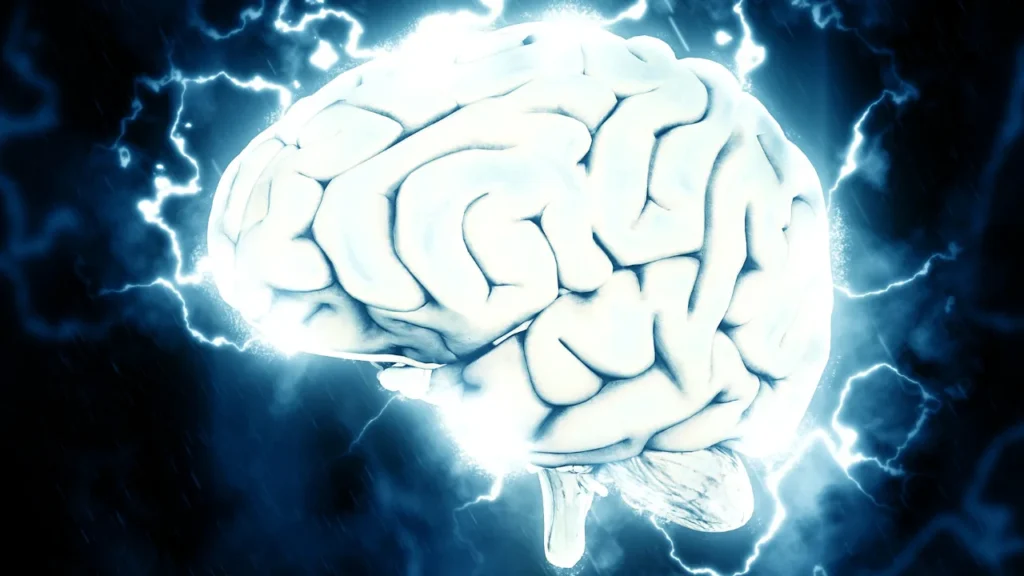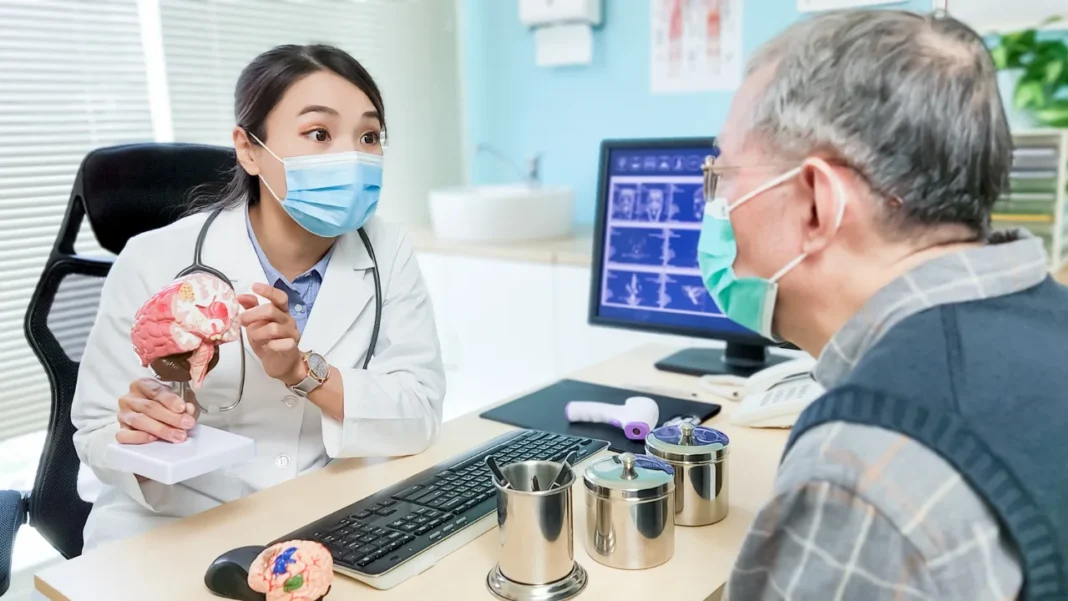Description
Hurst’s disease, also called acute hemorrhagic leukoencephalitis (AHLE), constitutes an uncommon inflammatory brain illness with a quick onset and severe neurological symptoms that can be fatal. Since the disease primarily impacts the body’s central nervous system, symptoms such as fever, headaches, seizures, changed mental status, comas, and neurological abnormalities like ataxia, paralysis, and vision impairment can appear suddenly and dramatically. AHLE is frequently brought on by bacterial or viral infections, immunizations, or preceding viral diseases.
You May Also Like:
Hypogammaglobulinemia: Description, Causes, and Treatment Protocol
Hurst’s disease / acute hemorrhagic leukoencephalitis (AHLE): Description, Causes, and Treatment Protocol is an original (MedNewsPedia) article.
Possible Causes
Several potential reasons have been linked to the onset of Hurst’s illness or AHLE, though the precise origin of this ailment is yet unknown. Such causes include the following:
Viral Infections and Triggers: Previously existing viral infections like influenza, Epstein-Barr virus, herpes simplex, varicella-zoster, or other respiratory diseases might cause AHLE. There is a theory that such viral infections may trigger an aberrant immune reaction, which would cause inflammation in the white matter of the brain.
Bacterial Infections: The onset of AHLE has also been connected to some bacterial infections besides viral infections. These diseases caused by bacteria may trigger an immune response that impacts the body’s central nervous system and leads to AHLE.
Post-Infectious Process: The immune system may remain overactive after an infection, which could result in an autoimmune-like reaction to the white matter of the brain. In those who are vulnerable, this post-infectious inflammatory response may result in AHLE.

Autoimmune Reaction: As an autoimmune condition, AHLE is characterized by inflammation and white matter injury brought on by the immune system of the body attacking healthy brain tissue. Uncertainty surrounds the precise cause of this autoimmune reaction.
Vaccinations: There exist documented occurrences of AHLE that happened soon after vaccines, despite the condition being incredibly rare. It is hypothesized that some vaccines may cause an immunological reaction that unintentionally damages one’s central nervous system, resulting in AHLE.
Genetic Predisposition: Some people may be more susceptible to autoimmune diseases that impact their central nervous system as a result of genetic factors, which could predispose them to AHLE. Nevertheless, the precise genetic elements contributing to AHLE remain incompletely discovered.
Environmental and Unidentified Factors: AHLE may potentially arise as a result of undetermined causes or additional environmental conditions. Exposure to certain poisons, environmental contaminants, or unknown substances may trigger an aberrant immune response resulting in inflammation of the brain.

Exacerbating and Mitigating Factors
Managing Hurst’s disorder, also known as AHLE, is a rare and acute neurological ailment that requires an understanding of both exacerbating and mitigating factors. Such aggravating and alleviating factors are as follows:
The exacerbating factors include:
Immunological Abnormalities: An immune system that is dysregulated or malfunctioning may make AHLE worse. Inflammation of our brain’s white matter may be exacerbated by an autoimmune-like response or an excessive immune reaction.
Immunizations or Earlier Infections: In rare cases, AHLE may be brought on by immunizations or prior infections. The immune system’s reaction to these occurrences can inadvertently attack the white matter of the brain, aggravating the symptoms of AHLE.
Genetic Predisposition: Certain people might possess genetic predispositions that increase their susceptibility to developing autoimmune disorders impacting their central nervous systems, which could exacerbate AHLE even if the precise genetic components causing AHLE remain not fully understood.
Environmental Factors: Specific environmental pollutants or toxins may make AHLE worse. Environmental variables may exacerbate the disease even when particular triggers or causal agents have not been discovered.
Infections: AHLE may worsen if it precedes bacterial or viral illnesses. Brain inflammation can result from an aberrant immune response to infections like herpes viruses, respiratory infections, influenza, or other microbiological agents.

The mitigating factors include:
Early Identification and Timely Intervention: Treating AHLE effectively requires prompt identification and the beginning of the right medication. Reduced inflammation, lessened brain damage, and improved results could all be achieved with early intervention.
Observation and Follow-up: The course and impact of AHLE must be minimized by routinely assessing the patient’s neurological condition, response to therapy, and managing any new complications.
Immunomodulatory Therapies: By reducing inflammation and altering the immune system, intravenous immunoglobulin treatment (IVIG), high-dose corticosteroids, and plasmapheresis may slow the development of AHLE.
Rehabilitation and Complementary Care: Seizures should be controlled, breathing support should be provided when necessary, and rehabilitation therapies like physical, and speech therapy may all contribute to better functional outcomes and lessen the effects of neurological impairments brought on by AHLE.
Individualized Treatment Approach: One important way to lessen the consequences of AHLE is to customize treatment programs according to each patient’s unique traits, the intensity of their symptoms, and how well they respond to therapy. Personalized care guarantees the best possible care and management approaches.
Standard Treatment Protocol
An intensive approach to managing severe neurological symptoms and controlling inflammation is the conventional treatment procedure for Hurst’s disorder, or AHLE. The following is an overview of the typical AHLE therapy regimen:
High-Dose Corticosteroids: High intravenous dosages of the corticosteroid methylprednisolone are frequently utilized as the initial treatment for decreasing brain inflammation. To reduce inflammation in the brain’s white matter, corticosteroids dampen the immune system’s reaction.
Intravenous Immunoglobulin Therapy (IVIG): Targeted antibodies from various donors are infused during IVIG. Targeting the immune system, this treatment may be able to stop the autoimmune process that is causing damage to the white matter of the brain. The aberrant immunological activity observed in AHLE can be helped to normalize with IVIG.
Plasmapheresis: A process called plasmapheresis, which is often referred to as plasma exchange, involves taking out and adding back plasma from the bloodstream to get rid of immune cells or dangerous antibodies that cause inflammation. When a patient’s response to IVIG or corticosteroids is insufficient, it is sometimes used.

Immunomodulatory Agents: Several immunosuppressive medications may be taken into consideration in situations with AHLE that are severe or resistant, meaning that the first therapies did not result in the desired response. Medication that suppresses particular immune system components, like cyclophosphamide or rituximab, can be given under strict physician guidance.
Supportive Care: When it comes to managing AHLE, supportive care is vital. It consists of different steps to deal with the disease’s symptoms and consequences. Rehab therapies to aid in recovery and enhance functional abilities, respiratory support if breathing is a problem, and seizure control with antiepileptic drugs may all be part of this.
Monitoring and Follow-up: It is crucial to continuously assess the patient’s neurological condition, vital signs, and reaction to treatment. To monitor developments, handle issues, and modify the treatment strategy as needed, follow-up exams are essential.
Multidisciplinary Approach: A collaborative group of neurologists, immunologists, intensivists, and rehabilitation experts is frequently needed for AHLE therapy to provide complete care that is suited to the patient’s requirements.

Treatment Options
Several adjunct remedies and alternative therapy methods have been investigated in addition to regular medical interventions to treat Hurst’s illness or AHLE. These treatments may boost the efficacy of standard treatments. The following is a list of alternatives for adjunct therapies and treatments that have been regarded:
Nutritional Supplements: These comprise:
Vitamin D
Higher immunological function has been linked to adequate vitamin D levels. Sustaining appropriate levels of vitamin D may protect against autoimmune diseases, hence lowering the incidence or intensity of AHLE.
Omega-3 Fatty Acids
Supplements containing omega-3 fatty acids have anti-inflammatory qualities. In neurological illnesses such as AHLE, these supplements can modify the immune reaction and reduce inflammation.
Herbal Remedies: These involve:
Ginkgo Biloba
Studies have been conducted on ginkgo biloba’s anti-inflammatory activities, which are well-known for their possible neuroprotective qualities. It may contribute to AHLE patients’ neurological well-being and reduce inflammation.

Turmeric (Curcumin)
Turmeric’s primary ingredient, curcumin, has anti-inflammatory and antioxidant qualities. According to studies, it might have neuroprotective and anti-inflammatory properties, which could help control the inflammatory reaction in AHLE patients.
Natural Remedies: These include:
Physical Therapy
For those suffering from neurological deficits linked to AHLE, physical therapy rehabilitation can assist in addressing functional limitations, increase mobility, and improve their standard of life.
Acupuncture
The ancient Chinese treatment of acupuncture includes inserting tiny needles into predetermined bodily locations. According to some research, acupuncture may be used to treat neurological disorders in addition to conventional medicine. It may also assist in controlling symptoms and enhance general well-being.
Lifestyle Modifications: These encompass:
Stress Management
Immune system performance may be impacted by stress. Methods like yoga, meditation, mindfulness, and relaxation therapy can help lower stress and improve the body’s reaction to inflammation.
Anti-Inflammatory Diet
Following a diet high in whole grains, fruits, vegetables, and healthy fats can assist the body’s immune system in controlling inflammation linked to AHLE and have anti-inflammatory benefits.
However, supplemental therapies and other therapeutic approaches may be useful in AHLE, Still, further research is required to determine their safety, effectiveness, and optimal application in this particular condition. Prioritizing open communication with medical professionals can help patients and caregivers manage AHLE comprehensively and empirically. To achieve the best results, adjunct medicines should only be included under expert guidance.
Conclusion
Hurst’s disease, or acute hemorrhagic leukoencephalitis (AHLE), is a rare but severe inflammatory condition of the brain requiring prompt and multidisciplinary medical intervention. While conventional treatments such as corticosteroids, IVIG, and supportive care form the backbone of management, adjunct therapies like physical therapy and acupuncture may help improve outcomes. Nutritional supplements, such as vitamin D for supporting immune function and omega-3 fatty acids for reducing inflammation, can also be beneficial in managing the condition. These supplements may complement medical treatments by mitigating inflammation and promoting overall neurological health.
Prioritizing early diagnosis, individualized care, and open communication with healthcare professionals ensures the best possible outcomes for those affected by AHLE.

Additional resources for further reference
https://www.sciencedirect.com/science/article/pii/S2666354621000119
https://link.springer.com/article/10.1007/s00234-021-02667-1
https://www.frontiersin.org/articles/10.3389/fneur.2020.00899/full
Important Note: The information contained in this article is for general informational purposes only, and should not be construed as health or medical advice, nor is it intended to diagnose, prevent, treat, or cure any disease or health condition. Before embarking on any diet, fitness regimen, or program of nutritional supplementation, it is advisable to consult your healthcare professional in order to determine its safety and probable efficacy in terms of your individual state of health.
Regarding Nutritional Supplements Or Other Non-Prescription Health Products: If any nutritional supplements or other non-prescription health products are mentioned in the foregoing article, any claims or statements made about them have not been evaluated by the U.S. Food and Drug Administration, and such nutritional supplements or other health products are not intended to diagnose, treat, cure, or prevent any disease.


